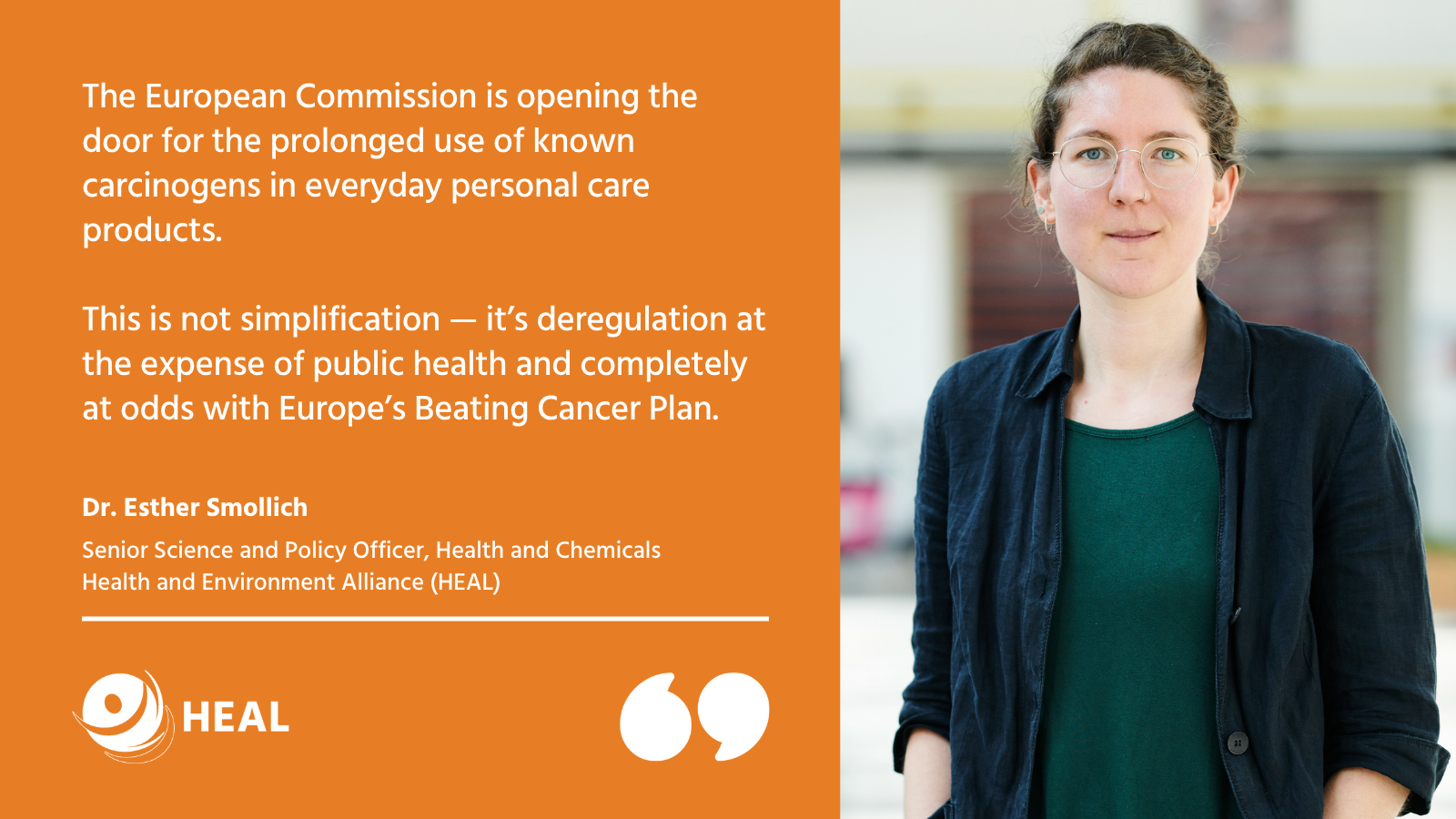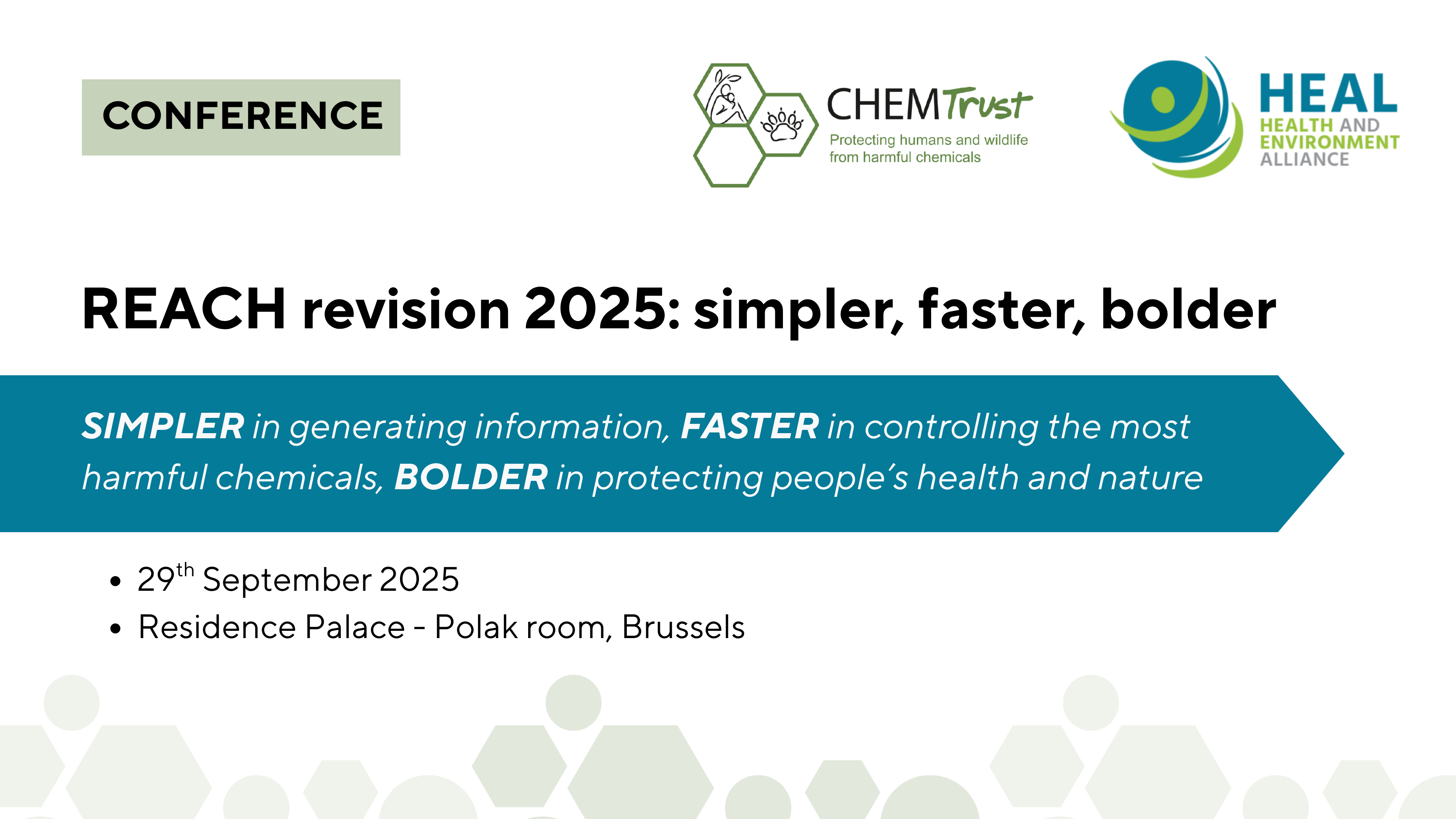Today’s publication of the European Commission’s chemicals omnibus confirms serious concerns: if pushed through the proposal will significantly weaken protections in the Cosmetic Products Regulation, allowing the prolonged use of carcinogens and other harmful chemicals in personal care products.
With the growing global climate movement, the UN climate summit, the upcoming climate negotiations in Madrid and all the deliberations in the new EU institutions (e.g. European Green Deal), responding to the climate crisis is finally on policy-makers and the public’s agenda.
Climate mitigation is a key public health issue, not only because global heating with extreme weather, changes in vector-borne diseases and allergies are an increasing threat to people’s health; but also because measures to end the fossil fuel addition will bring huge health benefits.
In order to reach the goal of limiting global warming to 1.5 degrees as enshrined in the landmark Paris Climate Agreement, it is clear that all countries need to step up, including the European Union.
It is increasingly clear that the goal that the EU has set for 2030 for cutting down CO2 is inadequate and needs to be increased. The current EU 2030 climate target of 40% greenhouse gas emission reduction, set well before the Paris Agreement, falls far short of the 65% reduction needed for the EU to stay on track as evidenced by the Intergovernmental Panel on Climate Change special report on 1.5°C published last year.
The health sector is looking to EU member states to walk the talk on climate mitigation and health protection, and step up. The immediate opportunity to do so are the National Energy and Climate Plans (NECP).
National governments are currently finalizing their legally binding NECPs. In it, they have to list climate and energy GHG reduction goals and measures for the energy, transport, buildings and other sectors for the years 2021-2030 and include an analysis of health benefits where possible. They also have to include their national renovation strategy for buildings, as well as specific national objectives on energy poverty (see also HEAL’s briefing).
Member States had submitted their draft NECPs to the EU Commission end of 2018 for review; in June 2019, the EU Commission published an assessment and recommendations for each member state. Unfortunately most NECPs as well as the EU Commission fail to highlight the health aspects and benefits of climate action.
HEAL recommends the following four points for an NECP that will be truly health-protective:
- Increase the national CO2 reduction goal for 2030 to respond to the urgency of climate change
- Include clear and swift targets for the phasing out of coal power generation and fossil fuel subsidies, so as to accelerate decarbonization in the energy sector
- Put health at the center of renovation strategies and measures to climate-proof buildings, and include clear measures on tackling energy poverty
- Carry out a comprehensive health benefit analysis, which will show the extent of the offsetting of mitigation costs through the prevention of disease and related health cost



